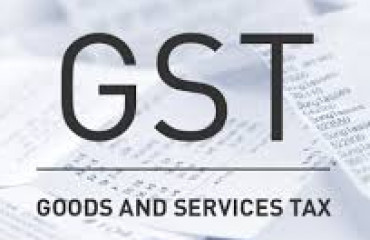
GST reforms have boosted consumer spending during the festive season, with an 8.5% increase in sales compared to last year, amounting to ₹6 trillion. Major tax cuts led to increased demand for cars, kitchenware, and other goods, though some businesses faced supply chain disruptions.
The goods and services tax reforms have encouraged shoppers to spend on items such as cars and kitchenware during the festive season, providing relief for the economy following the 50% tariffs imposed by the US, according to a report by Bloomberg.
Consumer spending from September 22 to October 21, the period between Navratri and Diwali, rose 8.5% from the same period the previous year, the report noted, citing data from retail intelligence platform Bizom.
Sales across India reached ₹6 trillion ($67.6 billion), with items such as jewellery, electronics, apparel, furnishings, and sweets being in the highest demand, the report quoted BC Bhartia, national president of the Confederation of All India Traders.
The increase in sales indicates a reversal in local consumption, following a brief recovery in April that was halted by the US tariffs.
The Narendra Modi-led NDA government reduced the GST for nearly 400 categories of products from September 22 onwards.
Boost for auto sales
India's leading carmakers, such as Maruti Suzuki India Ltd., Tata Motors Passenger Vehicles Ltd., and Mahindra & Mahindra Ltd., experienced a surge in monthly sales due to a major tax cut, which reduced car prices.
Hyundai Motor India witnessed a 20% increase in sales on Dhanteras, an auspicious day for shopping, compared with last year, while Tata Motors delivered more than 100,000 cars between Navratri and Dhanteras.
Mahindra experienced a 27% increase in tractor sales, driven by a good monsoon that boosted rural incomes. Additionally, the tax cut encouraged more purchases of Mahindra products.
Financial service firms, such as Kotak Mahindra Bank Ltd. and SBI Cards & Payments Services Ltd., reported strong growth in spending across various categories.
"We saw buoyancy in the kitchen category" during the festive season, with a boost in sales of products such as pressure cookers due to tax cut, Kaleeswaran A., chief financial officer at Crompton Greaves Consumer Electricals Ltd., told Bloomberg News.
However, the tax changes also disrupted supply chains for some Indian businesses and affected sales, as companies and distributors rushed to sell goods at previous rates, the report said. Meanwhile, consumers pushed back big purchases from mid-August to the end of September after lower prices took effect.
Has pent-up demand contributed to high sales?
The sales surge should be interpreted cautiously, as part of it may result from unusually high pent-up demand, the report quoted Nomura economists Sonal Varma and Aurodeep Nandi. They also emphasised that an accurate metric should consider data trends from December to January.
While economic headwinds have somewhat eased; however, slower income growth, a weak labour market, and the diminishing wealth effect still suppress sentiment and demand, the report said citing BofA Securities.
However, companies are more optimistic.
Crompton's Kaleeswaran anticipates that the recent sales momentum will continue through January and onward. The manufacturer of fans and lamps is monitoring growth in the real estate, wire, and cable segments for indications of increased household confidence.
"Some of these green shoots are giving us the confidence" that consumption is moving in the right direction, Kaleeswaran said.
